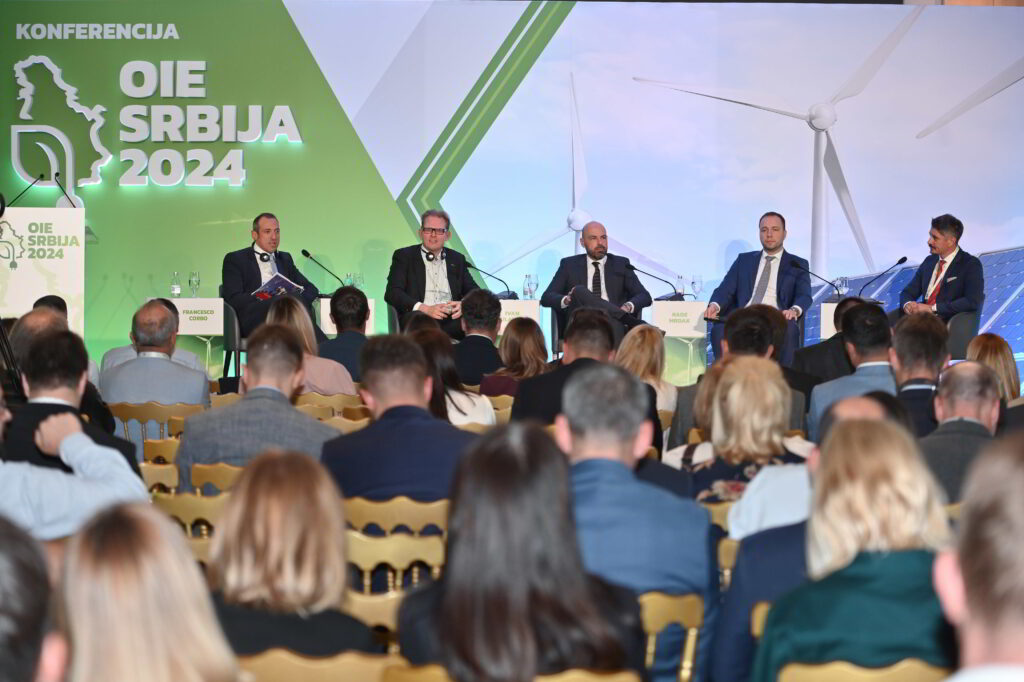While the winners of last year’s auctions for the allocation of the market premiums for renewable energy sources are building their projects, the next auctions are approaching which should be announced this November.
In Montenegro, a lot is going on in the RES sector: the first auctions are expected in the first quarter of next year, and EPCG will start building its first wind power plant in October.
All of this could be heard on the panel ‘Auctions in Serbia: Challenges of realizing projects of auction winner? Are we ready for other auctions? What if we don’t want or can’t go to auctions?’ held at the RES SERBIA 2024 in Vrdnik.
Panel was moderated by Miloš Laković, partner in Schoenherr, while the other participants were Rade Mrdak, Special Advisor in the Ministry of Mining and Energy Republic of Serbia, Ivan Bulatović, Executive Director of Elektroprivreda Crne Gore, Kai Rintala, Managing Director of Taaleri Energia and Francesco Corbo, Associate Director, Regional Head of Energy of EBRD.
Lower prices on second auctions
Rade Mrdak, Special Advisor in the Ministry of Mining and Energy, reminded us that we are expecting quotes of 300 MW for wind and 100 MW for solar, increased by 25 MW remaining from the past auctions.
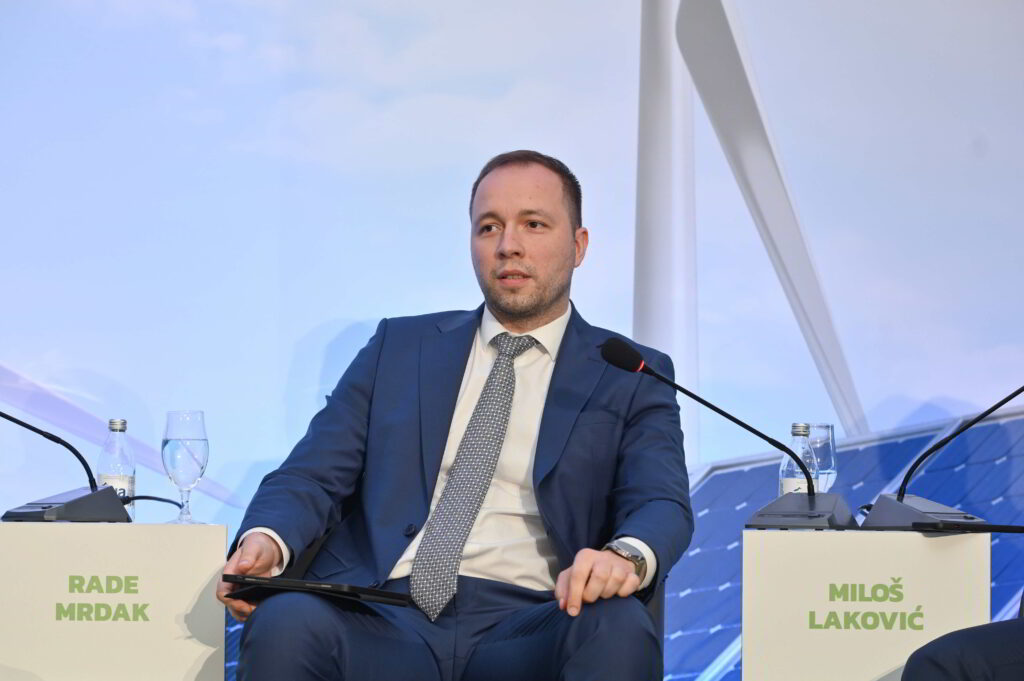
Rade Mrdak, Special Advisor in the Ministry of Mining and Energy
According to him, the prices will be significantly lower than at previous auctions, but enough to attract investors. He also announced the introduction of a new criteria, which means that in addition to the offered price, part of the capacity that the investor intended for supplying end customers is also evaluated. That capacity can be offered to a guaranteed supplier, EPS or to an end customer through a PPA contract for the purchase of electricity.
With this criterion, the Ministry wants to reward investors who are ready to help end customers – emphasized Mrdak and added that the criteria will not be elimination, but evaluation and that even investors who do not secure a contract with end customers will be able to win at auctions.
Investors will have enough time to familiarize themselves with the novelties, because, as explained by Mrdak, the plan is to leave a somewhat longer deadline for submitting offers and to publish the list after New Year. As he says, the Ministry is working on the preparation of the second round because it wants to defend the success achieved with the first auctions.
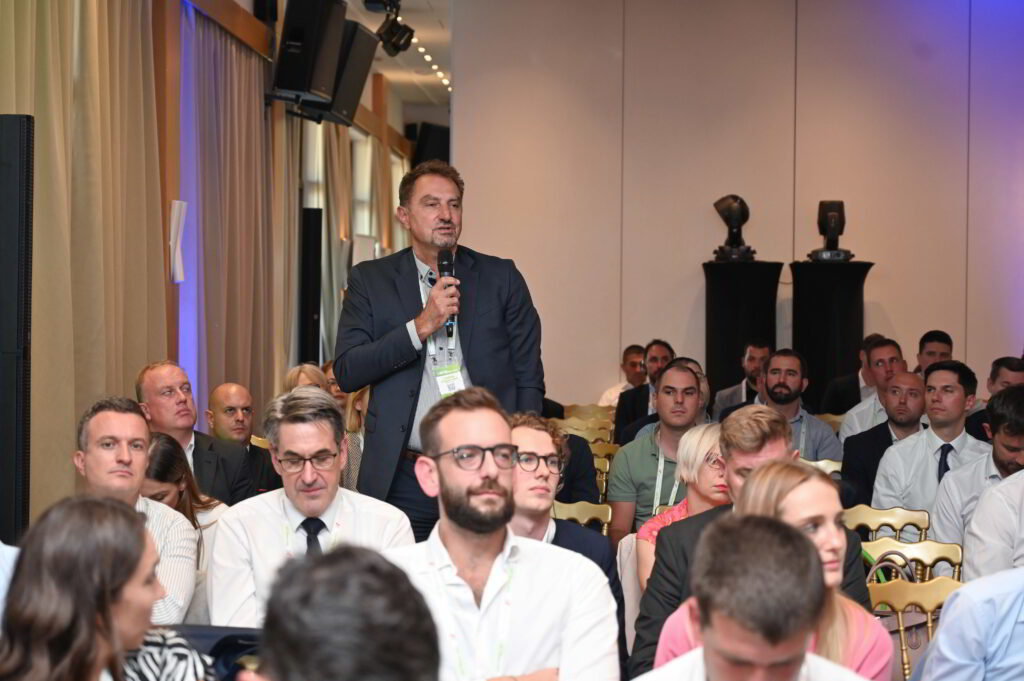
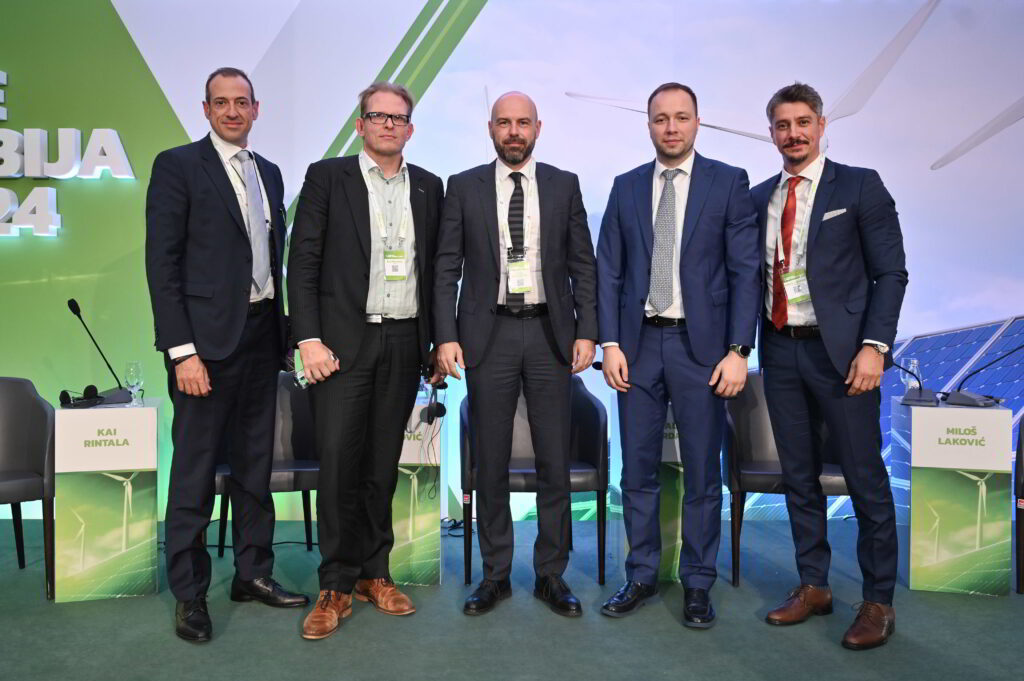
He expects the solar auctions this year to be more attractive than the wind, and the outcome will show the future direction and whether a change in quotas is needed in the future.
It would be natural if wind and solar were equal, but we defined the first three-year plan in accordance with the real situation on the market, where wind power plants are more developed. Our decision will depend on the results of these actions – said Mrdak.
He reminded that the auctions are instruments that that enables massive development of RES projects with minimal costs for citizens. As he says, in the region and beyond, auctions will be the main driver of the growth of renewable sources, because the market is not yet capable of ensuring that the risk associated with changes in energy prices is eliminated in the long term.
The first auctions in Montenegro at the beginning of next year
While Serbia is preparing for second auctions, Montenegro is waiting for the first auctions, which will be held in the first quarter of next year, said Ivan Bulatović, Executive Director of Elektroprivreda Crne Gore, who also announced that EPCG will start building the first wind farm under its ownership in October, Gvozd. For the 54.6 MW wind farm project, EPCG received a loan of EUR 82 million from the European Bank for Reconstruction and Development.
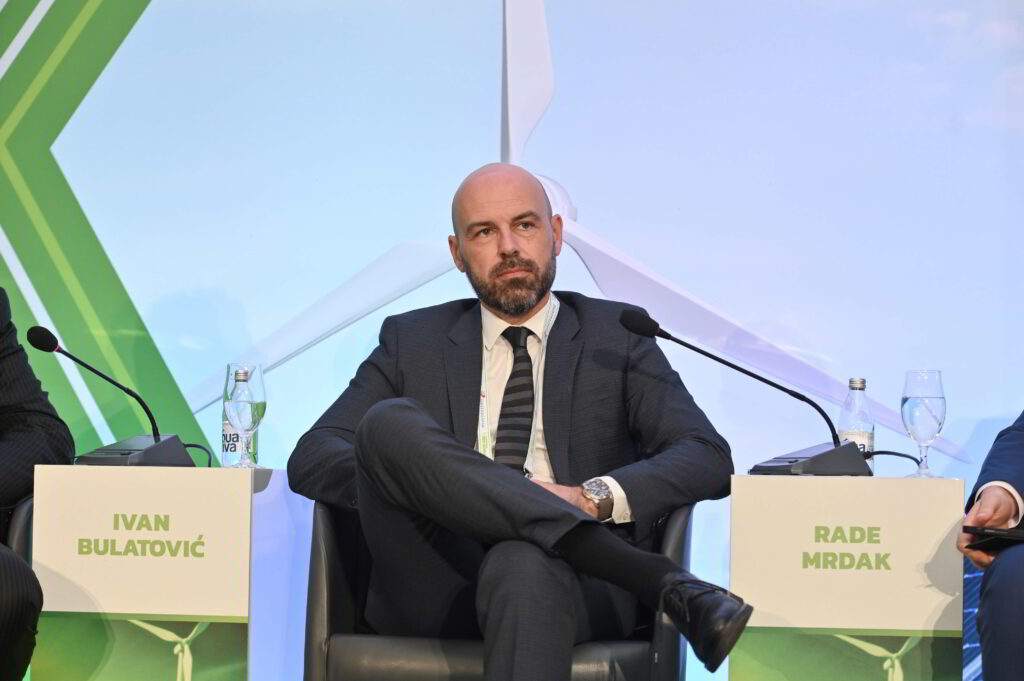
Ivan Bulatović, Executive Director of Elektroprivreda Crne Gore
We are developing several solar power plants, then a floating solar power plant with the EBRD. We are proud of the Solari 5000+ project, where we expect to install photovoltaic systems with a total power of 70 MW on the roofs of buildings by the end of the year. All this should enable us to make a peaceful transition to green energy – notes Bulatović.
He pointed out that Montenegro is in a strong investment cycle and that EUR 400 million will be invested in green energy in the next four years. However, he reminded that Montenegro still gets 40% of its energy from coal.
And that’s a problem we struggle with every day. The energy community sets increasingly strict conditions in this regard. We invested EUR 80 million in the ecological reconstruction of our thermal power plant. We still see it in operation, but we will see it on a reduced scale – says Bulatović.
RES projects must be developed outside the auction system
Kai Rintala, Managing Director of Taaleri Energia, which together with the Masdar company is behind one of the winners of the Serbian auctions, the Čibuk 2 wind farm, is satisfied with the outcome of the auctions.
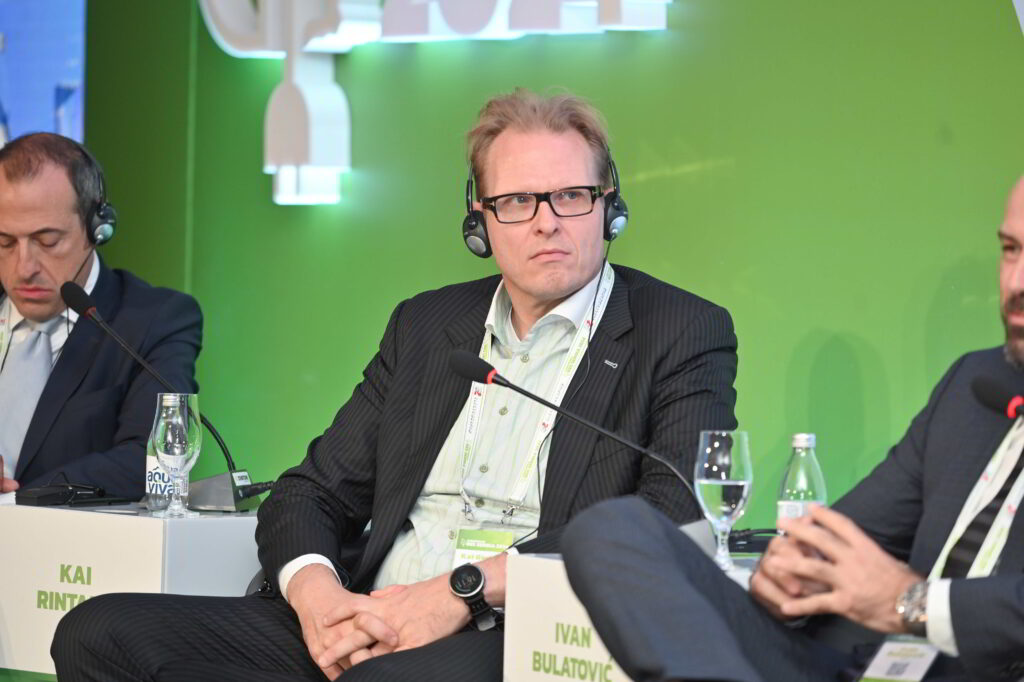
Kai Rintala, Managing Director of Taaleri Energia
For us, the outcome of the auctions is fantastic. The auctions were organized with clear rules, an efficient process, and a good price was achieved – said Rintala.
However, he emphasizes that one auction cannot replace fossil fuels.
A long-term solution for the development of RES projects must be sought outside the auction system. It is important that we have more players in the market. Auctions should be developed in parallel with contracts for the difference – he said and added that he believes that a market for commercial PPAs, energy purchase contracts between electricity producers and commercial buyers, such as companies or industrial users, will emerge.
EBRD: Investors need certainty
Francesco Corbo, Associate Director, Regional Head of Energy at the EBRD, which assists both Serbia and Montenegro in conducting auctions, notes why it is important for investors to have a multi-year incentive system plan.
The cycle of three calls that exists in Serbia is important for investors to know that they have a chance even if they fail at the first auctions. Auctions are being prepared for Montenegro, where 2-3 rounds are also planned for consistency and security – announces Corbo.
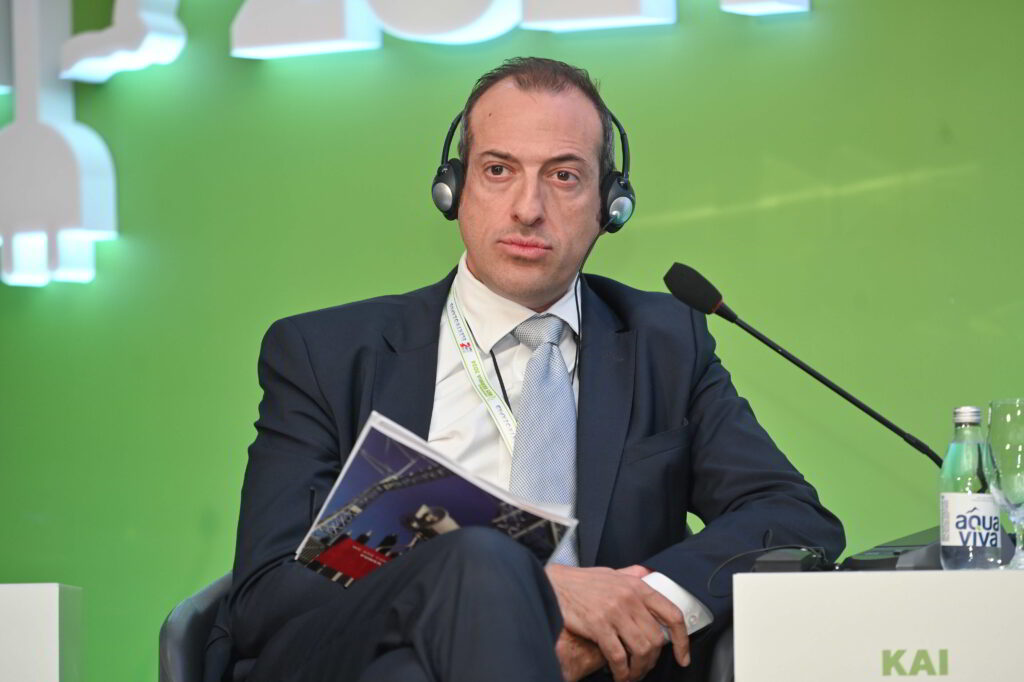
Francesco Corbo, Associate Director, Regional Head of Energy at the EBRD
However, he points out that the EBRD also encourages bankable projects outside the auction system.
The EBRD wants to speed up decarbonization and the energy transition, and auctions are the first step, but only the tip of the hill. We need to develop the market and the EBRD supports projects outside of auctions – concludes Korbo.


